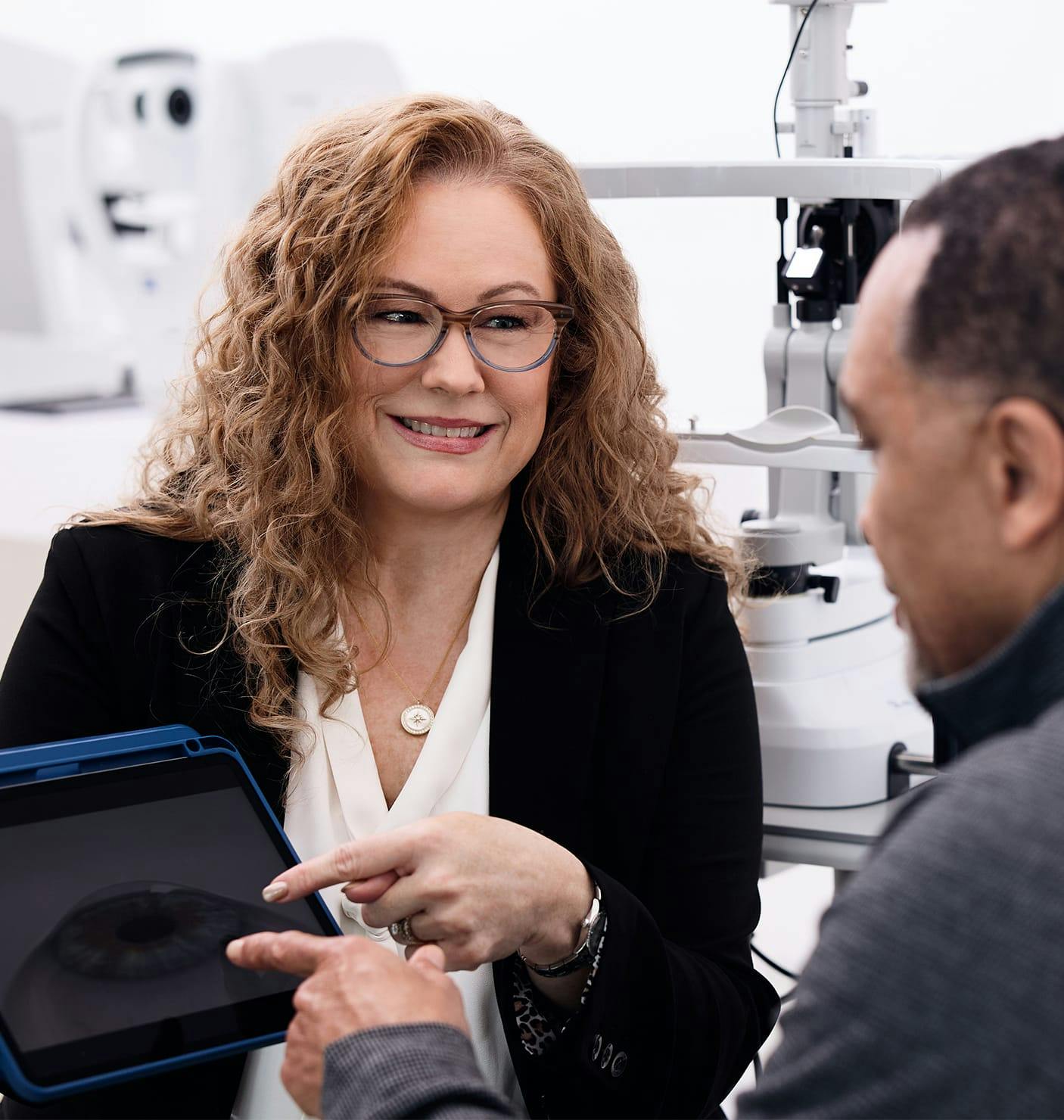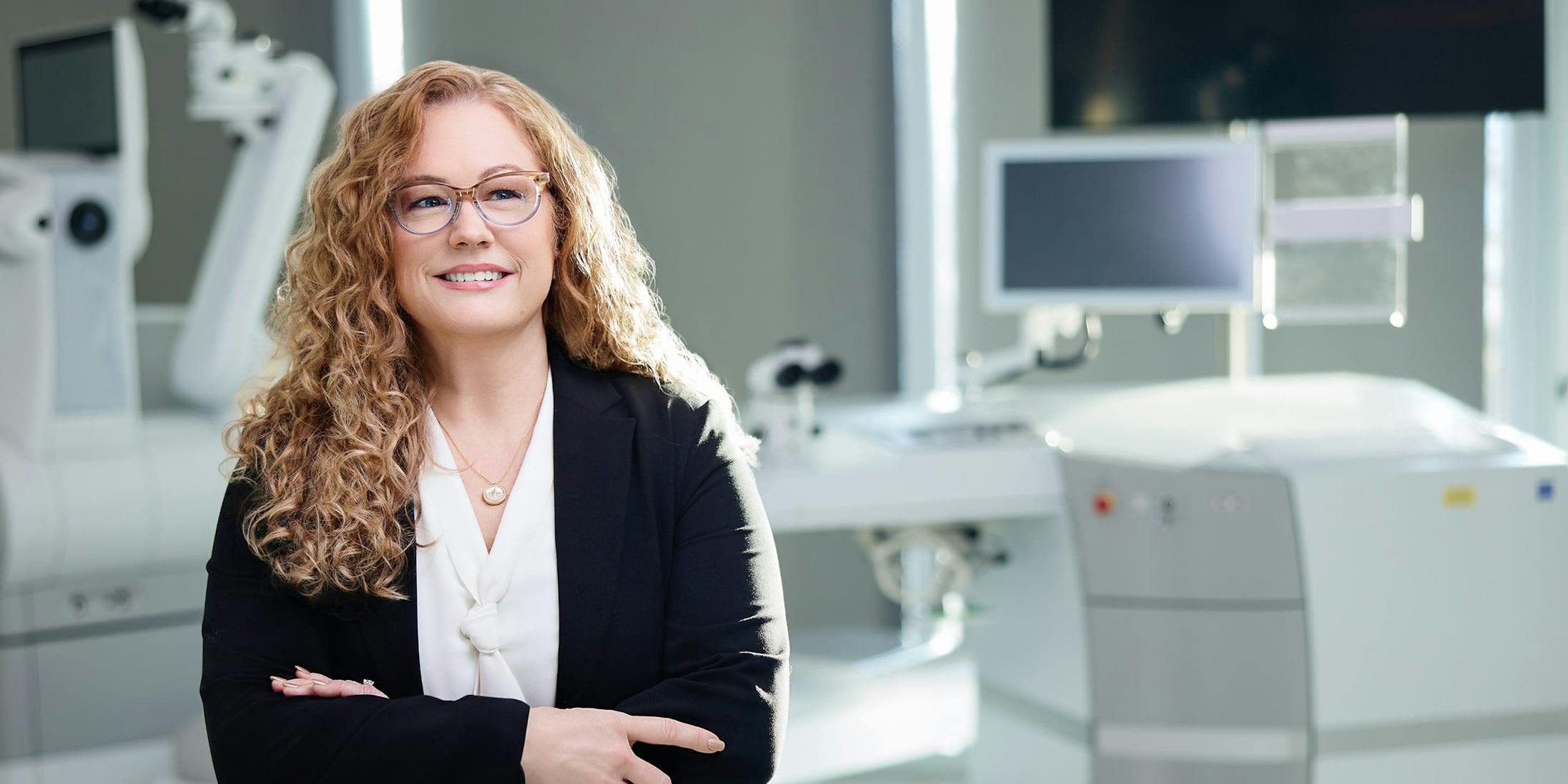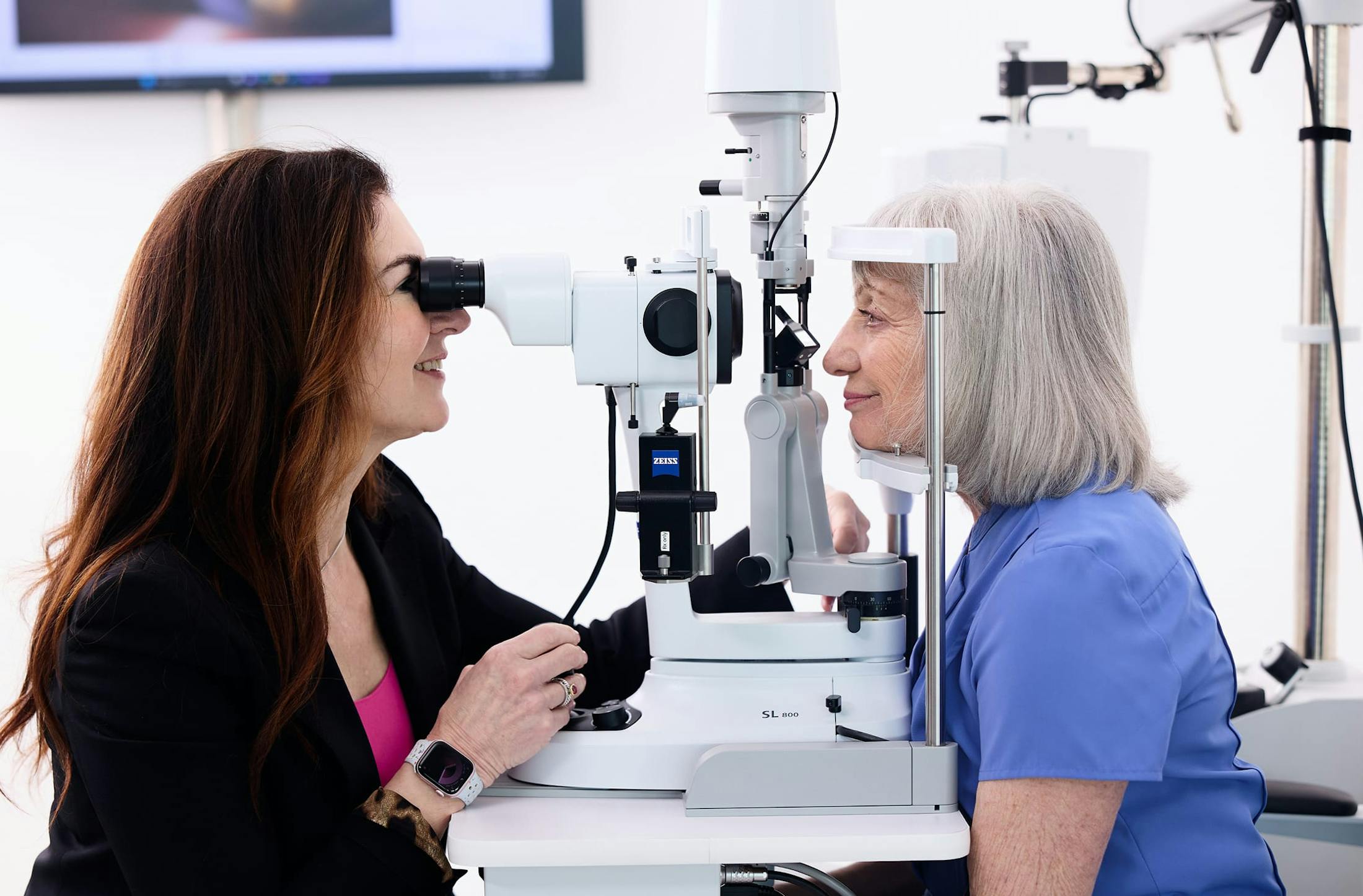Smooth out corneal irregularities and improve vision clarity with superficial keratectomy, a gentle procedure that removes damaged surface tissue for healthier eyes.
The Benefits of Superficial Keratectomy
- Smoother, Healthier Corneal Surface: The procedure removes irregularities and damaged tissue, improving clarity and comfort.
- Improved Vision for Corneal Scarring or Degeneration: Patients with Salzmann’s nodular degeneration or corneal scars see significant improvements in sharpness and focus.
- Minimally Invasive & Quick Recovery: Superficial keratectomy is an outpatient in office procedure with minimal downtime, allowing for fast healing and vision improvement.
- Long-Lasting Results: By eliminating abnormal tissue, the procedure prevents future corneal irregularities and stabilizes vision.
- Effective for Chronic Eye Conditions: This treatment is ideal for patients with persistent corneal issues that do not respond to drops or other conservative treatments.












